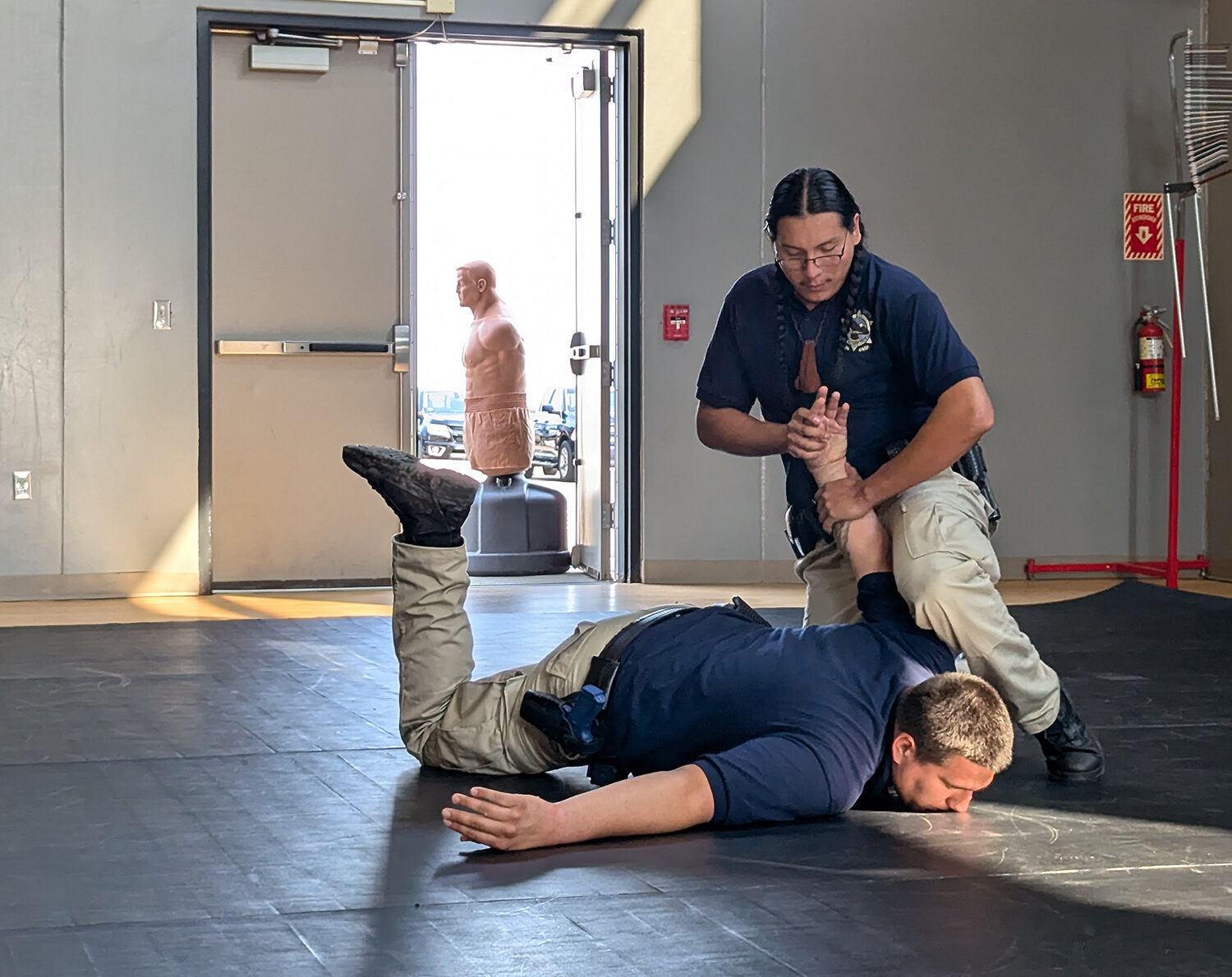
John Hult, South Dakota Searchlight
Complaints about law enforcement have steadily risen over the past few years, owing in part to an online portal that simplifies the process of making a complaint to the state Division of Criminal Investigation about alleged police misconduct.
Even with the rise, though, fewer than 1% of certified officers in South Dakota were disciplined for their behavior in 2024.
“I know we get mired down sometimes in the misconduct, the complaints, the investigations. It’s easy for us to see or be of the perspective that there’s a lot of things going on in the state that are concerning,” Law Enforcement Training Director Hank Prim said Wednesday at a meeting of the state’s Law Enforcement Officers Standards and Training Commission in Pierre. “But the perspective in that stat I think really shows us where reality is.”
Prim presented the figures in a summary of what he called an “Integrity Report,” which lays out complaints against officers and their disposition. Prim pulled it together at the urging of commission member Neil Fulton, who is the dean of the University of South Dakota Knudson School of Law. Fulton said the State Bar of South Dakota produces a similar report for the edification of that group’s board members.
In Prim’s one-page rundown, he noted that complaints against officers are up again this year, continuing a trend in increased complaints that’s held for the past three years. There have been 142 complaints filed in 2024 thus far, a 24% increase over this point in 2023.
The commission also reviews applications for possible certification and entry into the state’s basic law enforcement training course. In 2024, the commission denied 13 total applications: eight from law enforcement hopefuls, four for people hoping to become 911 dispatchers, and one from a person who’d hoped to be a school sentinel. Sentinels are non-law enforcement personnel allowed to carry weapons in schools, in theory to retaliate against safety threats.
Another 13 students were dismissed from basic law enforcement training, five for disciplinary reasons, one for failure to prove their skills proficiency and seven for academic failure.
There were 16 officers who voluntarily gave up their certification after a misconduct complaint: 13 law enforcement officers, two 911 dispatchers and one person who was certified in both areas.
The commission held seven contested case hearings, and twice offered settlement agreements to officers, which typically require some measure of remedial training and a suspension but do not result in a loss of certification.
Request for victim notification
The commission voted Wednesday to certify a handful of K-9 units, to reinstate eligibility for an officer with lapsed certification and to allow a student rejected for basic training several years ago for failure to disclose his full educational history another shot at joining the academy.
Before the integrity report or certification votes, however, Rapid City lawyer Jim Leach appeared briefly to suggest a change to commission protocol with regard to contested case hearings.
In those hearings, the commission serves as judge and jury in cases where an officer contests allegations of misconduct.
In October 2023, excessive force resulted in a suspended certification for a Brookings officer named Damian Weets. At the commission’s most recent meeting, commissioners voted to allow Weets to return to duty without a second psychological examination.
Weets roughed up an intoxicated man — a client of Leach — at the Brookings County Jail. Leach appeared at Weets’ hearing, but wasn’t given any notice about it.
“The only way that I learned that there would be a contested case hearing was because I got a call two days before the hearing from a member of the news media,” Leach said.
Leach suggested that the commission consider adopting a rule under which the alleged victim of an officer facing a misconduct hearing — and their lawyer, if applicable — be notified of the hearing.
In criminal proceedings, the South Dakota Constitution requires the notification of victims of upcoming hearings involving the person who victimized them, should they choose to be notified.
Adopting a similar approach to notification by the commission, Leach said, “would have no downside for you folks,” but would reassure citizens who struggle to trust police that the overseers of ethics in the state take misconduct seriously.
“Just in terms of greater transparency in government, I think that’s a good thing,” Leach said. “I understand that some processes in government need to be in private, but this is not one of them.”
Dan Satterlee, director of the Division of Criminal Investigation, told Leach the commission will take the matter under advisement the next time it reviews its policies.
